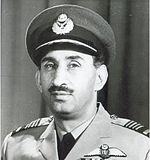Punjabi community and surname
Awan (Punjabi and Urdu: اعوان) is a Punjabi Muslim tribe and surname[1][2] originating from the Punjab region of Pakistan. Awans are predominantly present in the northern, central, and western parts of Punjab, with significant population also present in Khyber Pakhtunkhwa, Azad Kashmir, and to a lesser extent, in Sindh and Balochistan. They claim to be descendants of the Qutub Shah who came to the region with Mahmud of Ghazni.[3]
History
Jamal J. Elias notes that the Awans believe themselves to be of Arab origin, descended from Ali ibn Abu Talib and that the claim of Arab descent gives them "high status in the Indian Muslim environment".[4] However, they are also described as having Jat origins.[5]
Christophe Jaffrelot says:
The Awan deserve close attention, because of their historical importance and, above all, because they settled in the west, right up to the edge of Baluchi and Pashtun territory. Legend has it that their origins go back to Imam Ali and his second wife, Hanafiya. Historians describe them as valiant warriors and farmers who imposed their supremacy on the Janjua in part of the Salt Range and established large colonies all along the Indus to Sind, and a densely populated center not far from Lahore.[6]
People of the Awan community have a strong presence in the Pakistan Army[7] and a notable martial tradition.[8] They were listed as an "agricultural tribe" by the British Raj in 1925, a term that was then synonymous with classification as a "martial race".[9]

